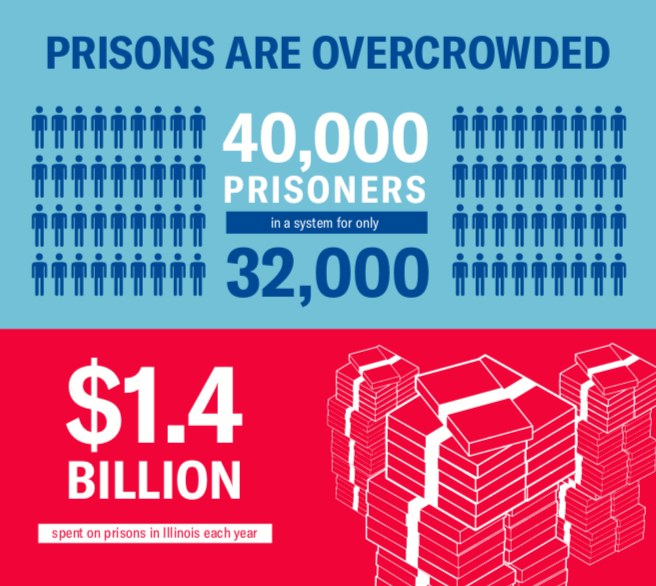Overcrowding in Illinois prisons is up, with more than 40,000 prisoners in a system built for only 32,000. While Illinois spends more than $1.4 billion on prisons each and every year, nearly half of formerly incarcerated people return to prison within three years. The reasons why are clear: overreliance on punitive sentencing, underinvestment in education and employment opportunities in communities, and cutting or underfunding programs proven to reduce recidivism.
Whole communities are being robbed of their economic and social contributions due to our out-of-control criminal justice system. Instead of warehousing large populations in overcrowded prisons and jails, we need to focus on giving people the tools they need to avoid lifelong entanglement in the justice system: tools like education, job skills training, and cognitive behavioral therapy.
Our laws go far beyond what is necessary for public safety and end up targeting the poor and vulnerable in our state. We need to change our outdated laws from being tough on crime to being smart on crime. We need to treat drugs like the public health problem they are, instead of simply stuffing thousands more into prisons. And we need to ensure Illinoisans with convictions have a fair chance to work and move on with their lives, rather than create a maze that leads them straight back to prison.
While ending our overreliance on prison is necessary to reform Illinois’ criminal justice system, it won’t be sufficient. Breaking the cycle will require an immediate and sustained commitment to shifting the State’s spending priorities to invest in communities plagued by poverty, lack of economic opportunity, and chronic violence.
Throughout this policy guide, the ACLU of Illinois outlines our six key priorities to immediately and safely improve Illinois’ criminal justice system.
You can read the full report here.
